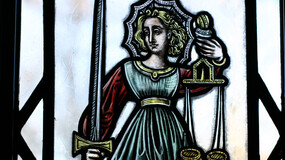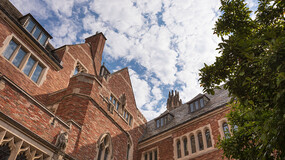
Soros Fellowship for New Americans Announces 2025 Recipients
Four current Yale Law School students and one incoming student have been named 2025 recipients of the Paul & Daisy Soros Fellowship for New Americans.

Rule of Law Clinic Represents 27 Former Senior Government Officials in Amicus Brief
The Rule of Law clinic represents 27 former national security, foreign policy, intelligence, and other public officials in an amicus brief supporting the Perkins Coie law firm.

MFIA Clinic Wins Temporary Restraining Order in Voice of America Case
A federal judge issued a temporary restraining order prohibiting the Trump administration from taking further steps to silence Voice of America, a government-funded broadcaster with an audience of over 300 million people around the world.

Criminal Justice Advocacy Clinic Bill Advances Out of CT Joint Judiciary Committee
A bill drafted by a coalition including the Criminal Justice Advocacy Clinic successfully passed out of the Joint Judiciary Committee of the Connecticut legislature.

Professor Rodríguez Co-Hosts New Podcast on Immigration Policies
Professor Cristina Rodríguez ’00 has launched a new podcast with colleagues from the New School and UCLA School of Law that examines the immigration policies of the Trump administration and their impact.

Clinic Wins Rare Appeal in California Highway Expansion Case
The Environmental Justice Law and Advocacy Clinic won a rare victory on their petition for a writ of mandate to the California Court of Appeal.

Message from Dean Gerken on the Rule of Law
A message from Dean Heather K. Gerken to the Law School Community on the rule of law.

Constitutional Interpretation Takes on a Broader View
“Democratic Constitutionalism” course provides students with a wide-angle view on the ways that courts decide constitutional cases that are enveloped in fierce conflict.




